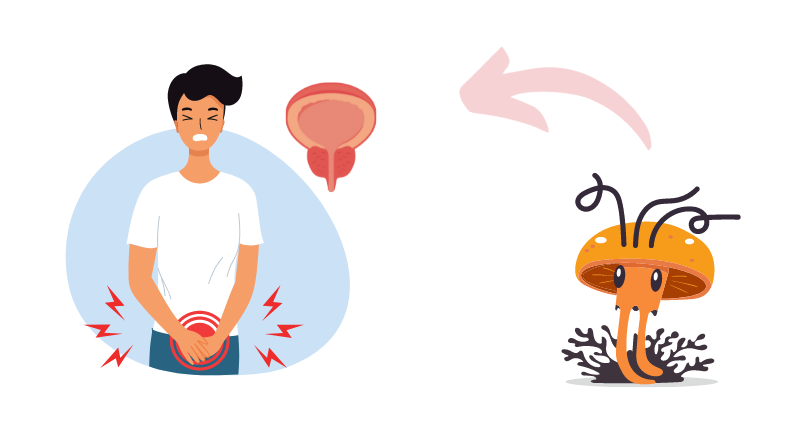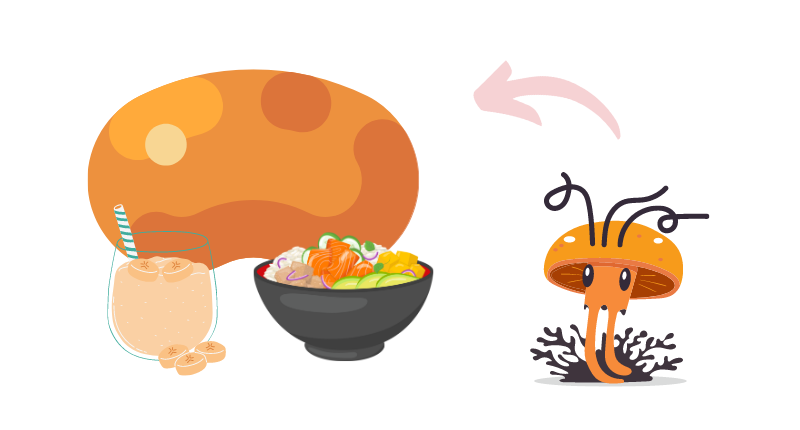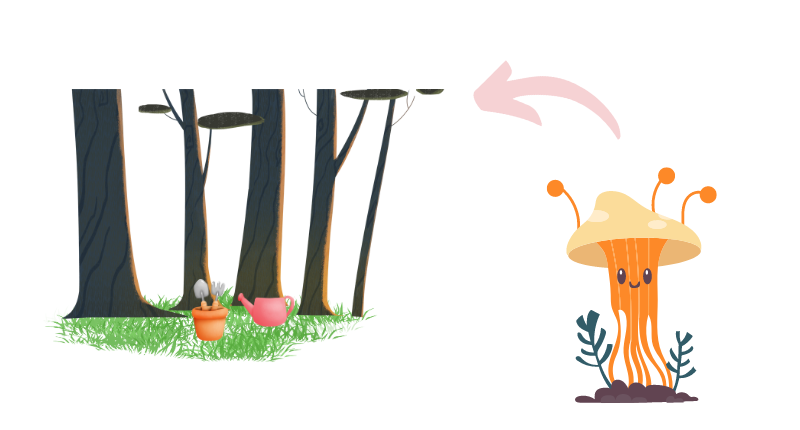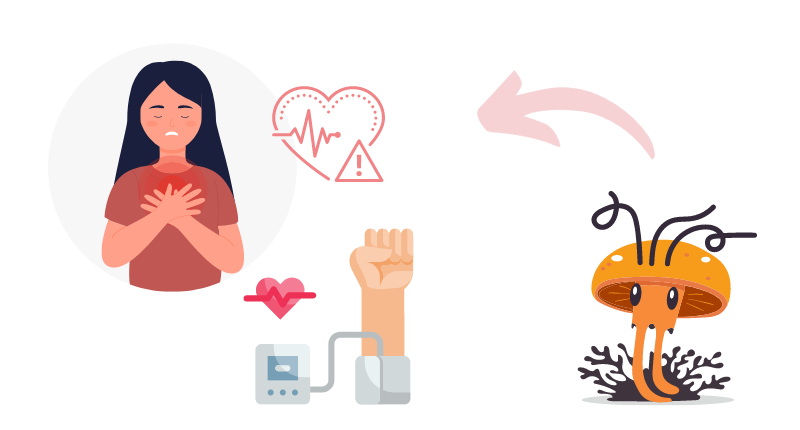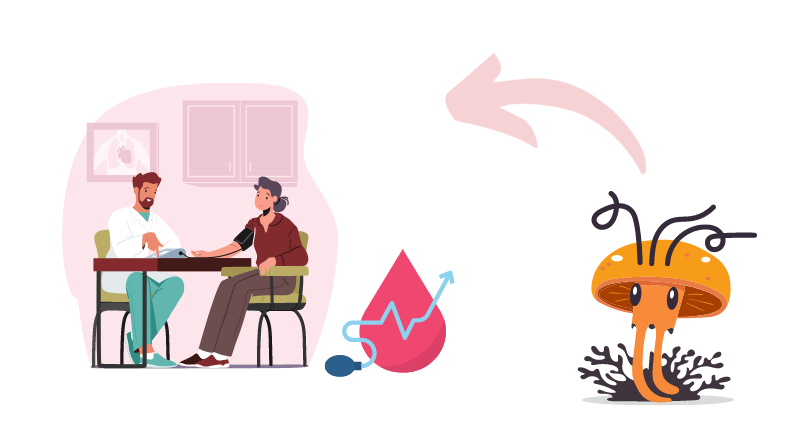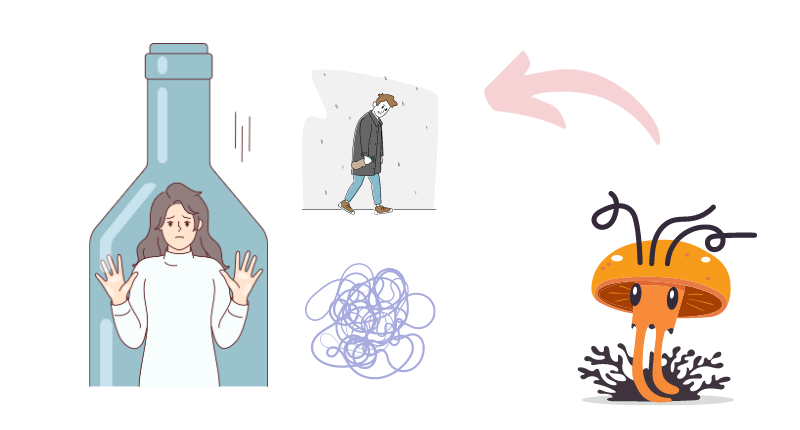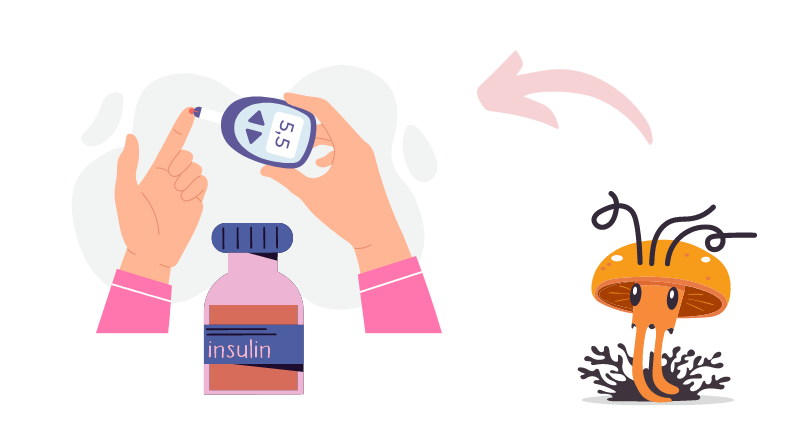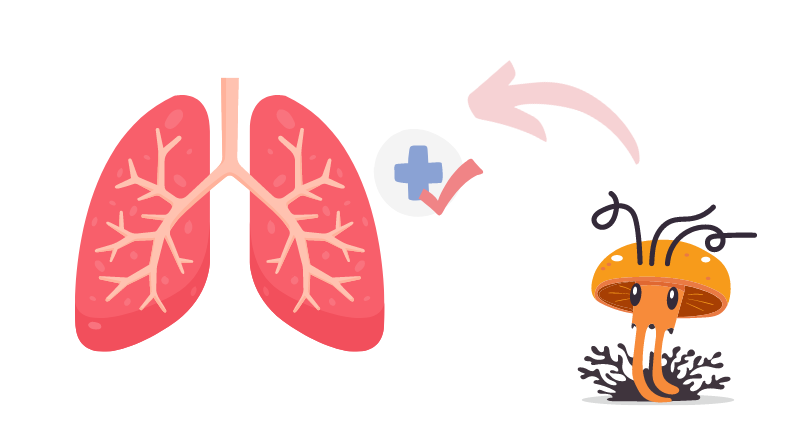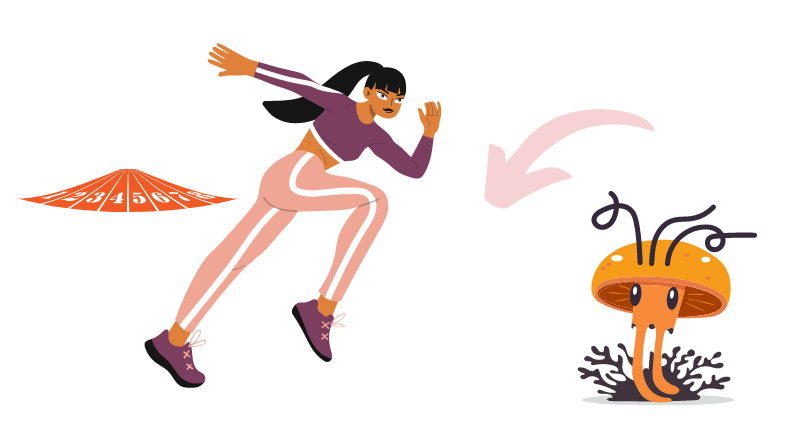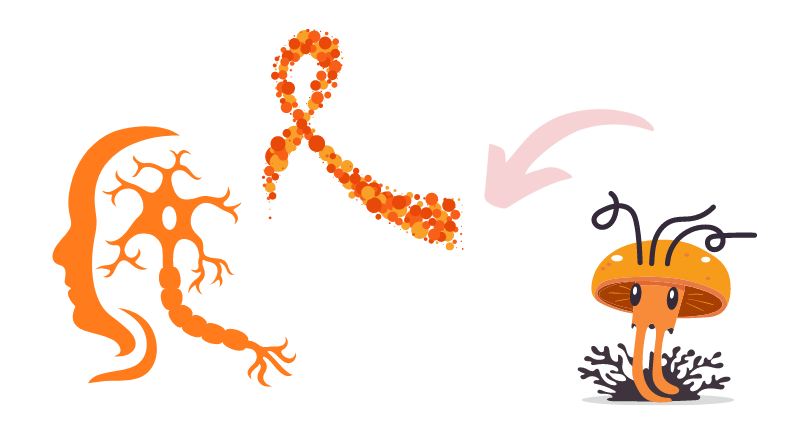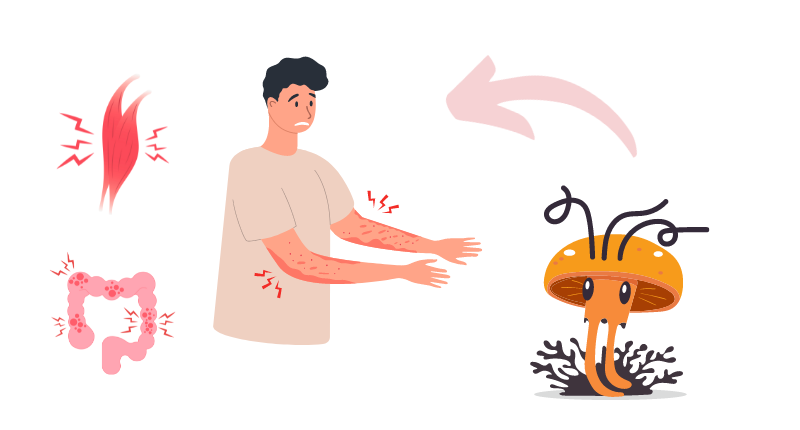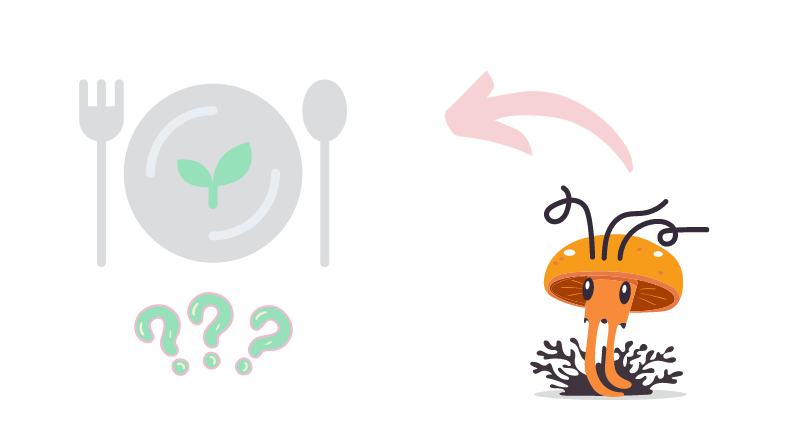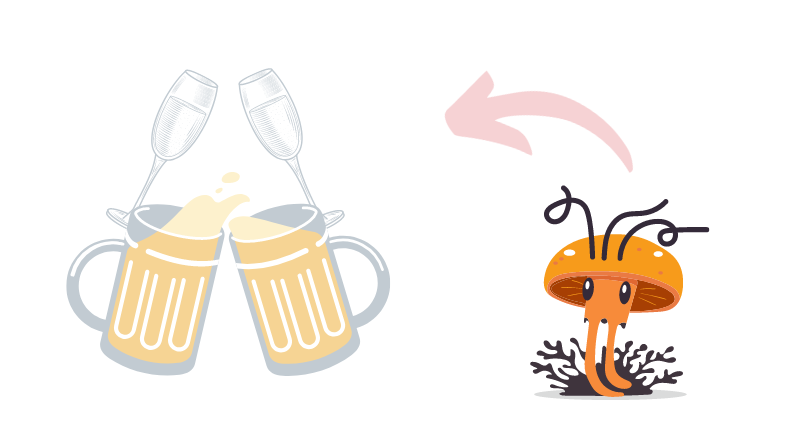The popularity of nootropic mushrooms has surged in recent years, particularly in Germany, where people are increasingly seeking natural alternatives to enhance cognitive performance and overall well-being. In this comprehensive guide, we will delve into the world of nootropic mushrooms in Germany, covering their history, benefits, legality, and availability. Furthermore, we will introduce you to Dr. Mush Me[1], a renowned expert and supplier of high-quality nootropic mushrooms in Germany, and explore seven popular nootropic mushrooms: Lion’s Mane, Reishi, Chaga, Turkey Tail, Cordyceps, Maitake, and Shiitake.
HISTORY OF NOOTROPIC MUSHROOMS IN GERMANY
The use of mushrooms for medicinal purposes dates back thousands of years[2]. In Germany, the tradition of using mushrooms as medicine is deeply ingrained in the culture. In recent years, there has been a resurgence of interest in nootropic mushrooms, which are believed to enhance cognitive function and improve overall brain health.
The term “nootropic” was coined in 1972 by Romanian psychologist and chemist Dr. Corneliu E. Giurgea[3]. Nootropics are substances that can enhance cognitive function, memory, creativity, and motivation. Nootropic mushrooms are a subset of these substances, specifically referring to mushrooms with cognitive-enhancing properties.
In Germany, interest in nootropic mushrooms has grown significantly over the last decade, as more people become aware of their potential benefits and seek natural alternatives to synthetic drugs[4].
BENEFITS OF NOOTROPIC MUSHROOMS
Nootropic mushrooms offer a wide range of potential benefits, which have been supported by both traditional use and modern scientific research. Some of these benefits include:
- Cognitive enhancement: Nootropic mushrooms have been shown to improve memory, focus, and cognitive function[5].
- Neuroprotection: Some nootropic mushrooms have antioxidant and anti-inflammatory properties that can help protect brain cells from damage[6].
- Stress reduction: Nootropic mushrooms can help reduce stress and anxiety by modulating the body’s response to stress[7].
- Mood enhancement: Many nootropic mushrooms have been shown to have positive effects on mood and mental well-being[8].
- Immune support: Some nootropic mushrooms contain compounds that can help support the immune system[9].
SEVEN POPULAR NOOTROPIC MUSHROOMS IN GERMANY
There are several types of nootropic mushrooms available in Germany. We will discuss seven popular ones below:
- Lion’s Mane (Hericium erinaceus): Lion’s Mane is renowned for its cognitive-enhancing properties, including improved memory and focus. It also exhibits neuroprotective effects and has the potential to promote nerve growth factor synthesis.
- Reishi (Ganoderma lucidum): Reishi, known as the “mushroom of immortality,” has been used for centuries for its calming and stress-reducing effects. It also possesses immune-modulating properties, making it a popular choice for supporting overall health.
- Chaga (Inonotus obliquus): Chaga is a potent antioxidant and anti-inflammatory mushroom that can help protect brain cells from damage. It has also been shown to have immune-boosting properties and may help reduce stress.
- Turkey Tail (Trametes versicolor): Turkey Tail is known for its immune-boosting properties, thanks to its high content of polysaccharide-K (PSK) and polysaccharide-peptide (PSP)[16]. It also exhibits antioxidant and anti-inflammatory effects, which can be beneficial for overall brain health.
- Cordyceps (Cordyceps militaris): Cordyceps is a unique fungus that has been used to enhance energy, endurance, and overall vitality. It has also been shown to possess cognitive-enhancing properties and may help reduce stress and anxiety.
- Maitake (Grifola frondosa): Maitake, also known as the “dancing mushroom,” is known for its immune-boosting properties, thanks to its high content of beta-glucans. It has also been shown to possess cognitive-enhancing effects, making it a popular choice for supporting brain health.
- Shiitake (Lentinula edodes): Shiitake is a popular culinary mushroom that has also been used for its medicinal properties. It contains compounds that can help support cognitive function, and may also have neuroprotective and immune-boosting properties[22].
LEGALITY AND REGULATION
In Germany, the legality and regulation of nootropic mushrooms can be complex. While some nootropic mushrooms, such as Lion’s Mane, Reishi, Chaga, Turkey Tail, Cordyceps, Maitake, and Shiitake, are legal to buy, sell, and possess, others may be subject to restrictions.
It is essential to familiarize yourself with the local laws and regulations surrounding nootropic mushrooms to avoid any legal issues.
WHERE TO FIND NOOTROPIC MUSHROOMS IN GERMANY
Nootropic mushrooms can be found in various forms, such as capsules, powders, extracts, and teas. In Germany, they are available through:
- Online retailers: Many online retailers specialize in selling nootropic mushrooms and other natural supplements. Ensure you are purchasing from a reputable source that provides quality products and transparent information about their offerings.
- Health food stores: Some health food stores carry nootropic mushroom supplements. It’s a good idea to ask a knowledgeable staff member for recommendations.
- Apothecaries: Traditional German apothecaries may carry nootropic mushrooms and can provide guidance on the best options for your needs.
DR. MUSH ME: YOUR TRUSTED SOURCE FOR NOOTROPIC MUSHROOMS
Dr. Mush Me[23], a leading expert in nootropic mushrooms, offers high-quality mushroom products through their website, Dr. Mush Me Germany. With a focus on providing the best possible products, Dr. Mush Me ensures that all their offerings are:
- Sourced from reputable growers
- Tested for quality and potency
- Free from contaminants and pesticides
- Made using sustainable and eco-friendly methods
By choosing Dr. Mush Me for your nootropic mushroom needs, you can trust that you are getting the highest quality products to support your cognitive health and overall well-being. In addition to offering a wide range of nootropic mushrooms, including Lion’s Mane, Reishi, Chaga, Turkey Tail, Cordyceps, Maitake, and Shiitake, Dr. Mush Me also provides valuable information and guidance on how to effectively incorporate these mushrooms into your daily routine.
CONCLUSION
Nootropic mushrooms offer a promising natural approach to enhancing cognitive function, improving overall brain health, and supporting well-being. In Germany, the popularity of these mushrooms has been steadily growing as more people seek natural alternatives to synthetic cognitive enhancers.
When considering nootropic mushrooms, it is crucial to be aware of the legal status and regulations surrounding their use in Germany. Lion’s Mane, Reishi, Chaga, Turkey Tail, Cordyceps, Maitake, and Shiitake are legal and widely available as supplements.
To ensure that you are getting the highest quality nootropic mushrooms, consider sourcing your supplements from a trusted provider like Dr. Mush Me. Their dedication to providing top-notch products ensures that you are receiving the most effective and safe nootropic mushrooms to support your cognitive health and overall well-being.
As interest in natural cognitive enhancers continues to grow, it is likely that we will see further research and development in the field of nootropic mushrooms. This will undoubtedly lead to a better understanding of their potential benefits and applications, helping individuals optimize their cognitive performance and overall health.
SOURCES
[1] Dr. Mush Me. https://www.drmushme.de/
[2] Chang, S. T., & Wasser, S. P. (2012). The role of culinary-medicinal mushrooms on human welfare with a pyramid model for human health. International Journal of Medicinal Mushrooms, 14(2), 95-134.
[3] Giurgea, C. (1972). The “nootropic” approach to the pharmacology of the integrative activity of the brain. Conditional Reflex, 7(2), 108-115.
[4] Winkelman, M. (2010). Shamanism: A biopsychosocial paradigm of consciousness and healing. ABC-CLIO.
[5] Mori, K., Inatomi, S., Ouchi, K., Azumi, Y., & Tuchida, T. (2009). Improving effects of the mushroom Yamabushitake (Hericium erinaceus) on mild cognitive impairment: a double-blind placebo-controlled clinical trial. Phytotherapy Research, 23(3), 367-372.
[6] Lemieszek, M. K., & Rzeski, W. (2012). Anticancer properties of polysaccharides isolated from fungi of the Basidiomycetes class. Contemporary Oncology, 16(4), 285.
[7] Gao, Y., Tang, W., Dai, X., Gao, H., Chen, G., Ye, J., … & Zhou, S. (2005). Effects of water-soluble Ganoderma lucidum polysaccharides on the immune functions of patients with advanced lung cancer. Journal of Medicinal Food, 8(2), 159-168.
[8] Li, I. C., Lee, L. Y., Tzeng, T. T., Chen, W. P., Chen, Y. P., Shiao, Y. J., & Chen, C. C. (2018). Neurohealth properties of Hericium erinaceus mycelia enriched with erinacines. Behavioural Neurology, 2018.
[9] Wasser, S. P. (2002). Medicinal mushrooms as a source of antitumor and immunomodulating polysaccharides. Applied Microbiology and Biotechnology, 60(3), 258-274.


